#Phillip II of Macedon
Text
Phillip and Olympias would be one of those disastrous co-parents that would say yes to their kid ONLY because the other parent said no.
4 notes
·
View notes
Text

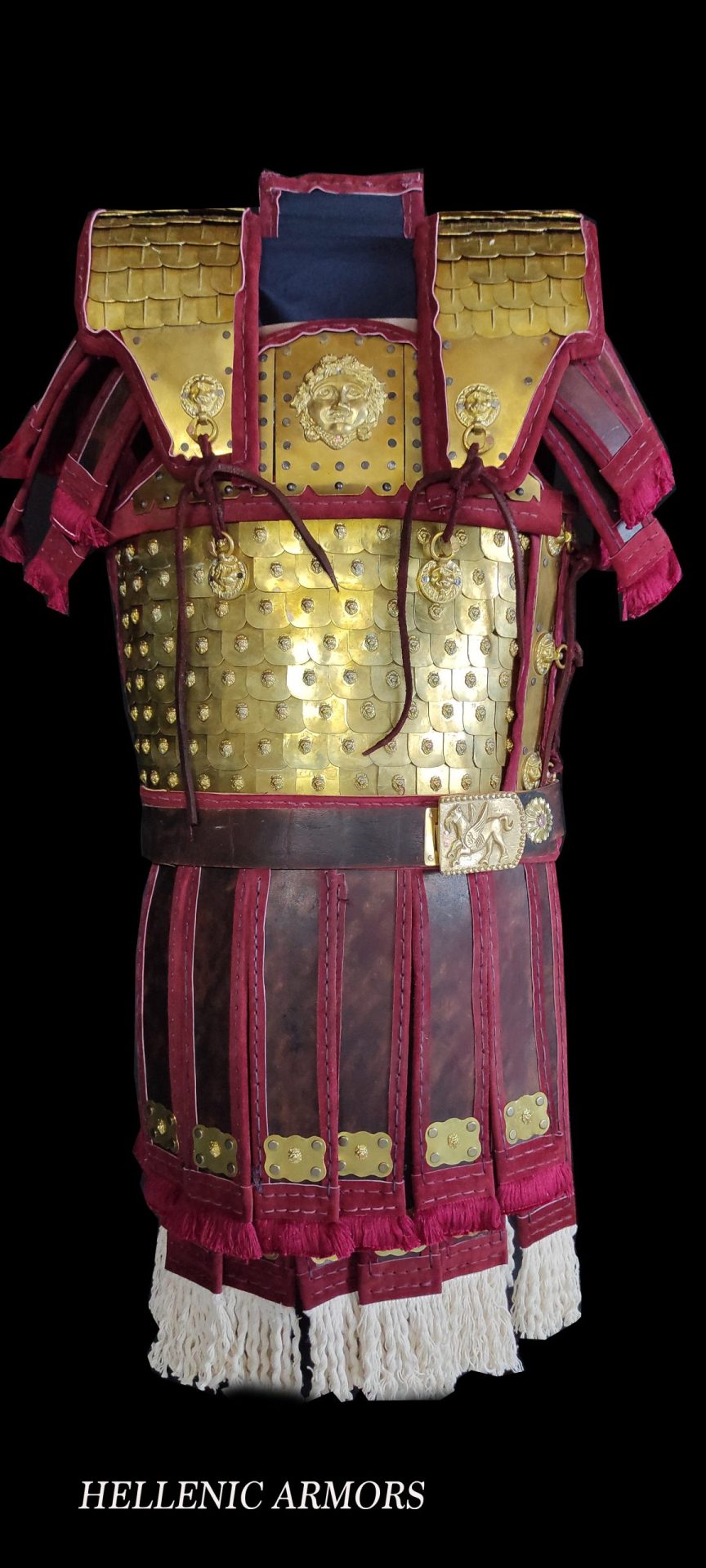
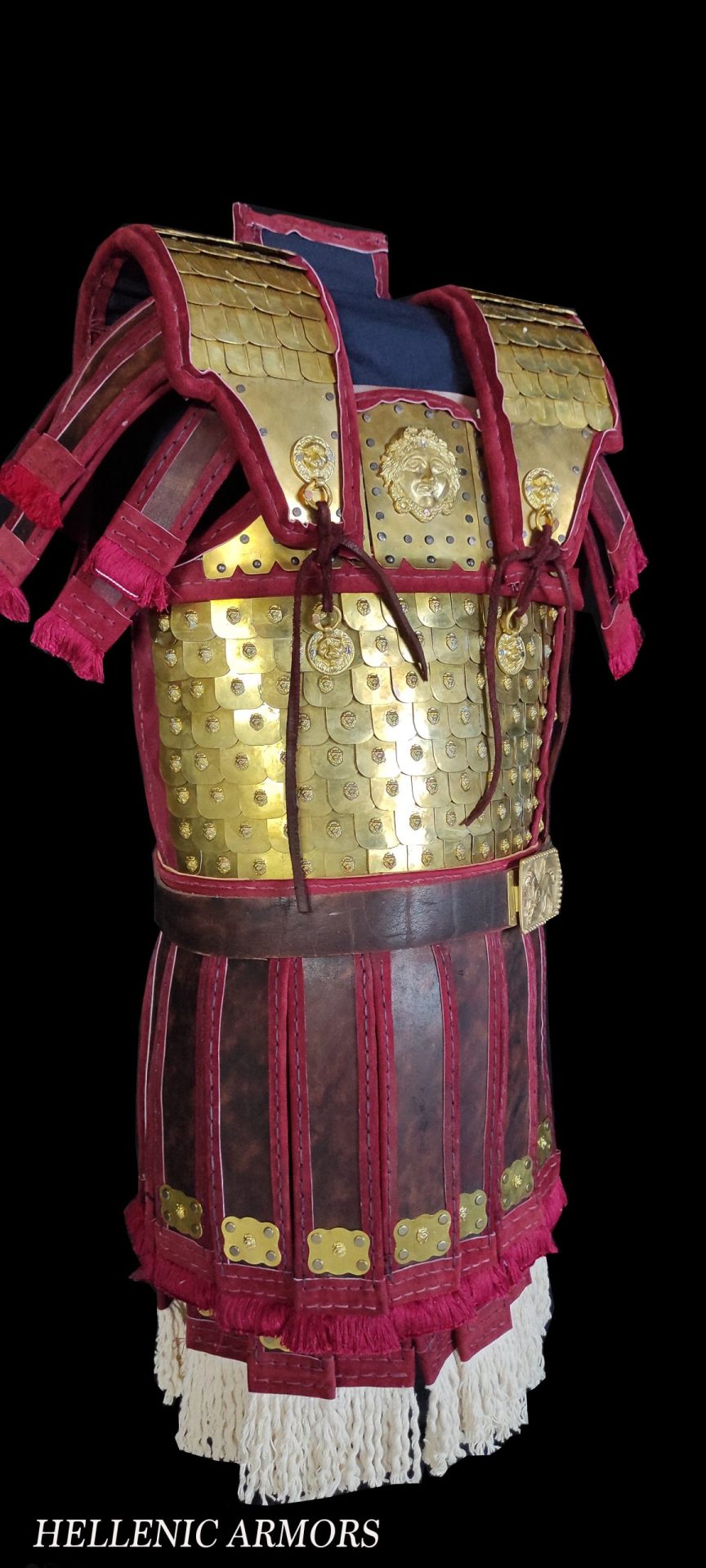

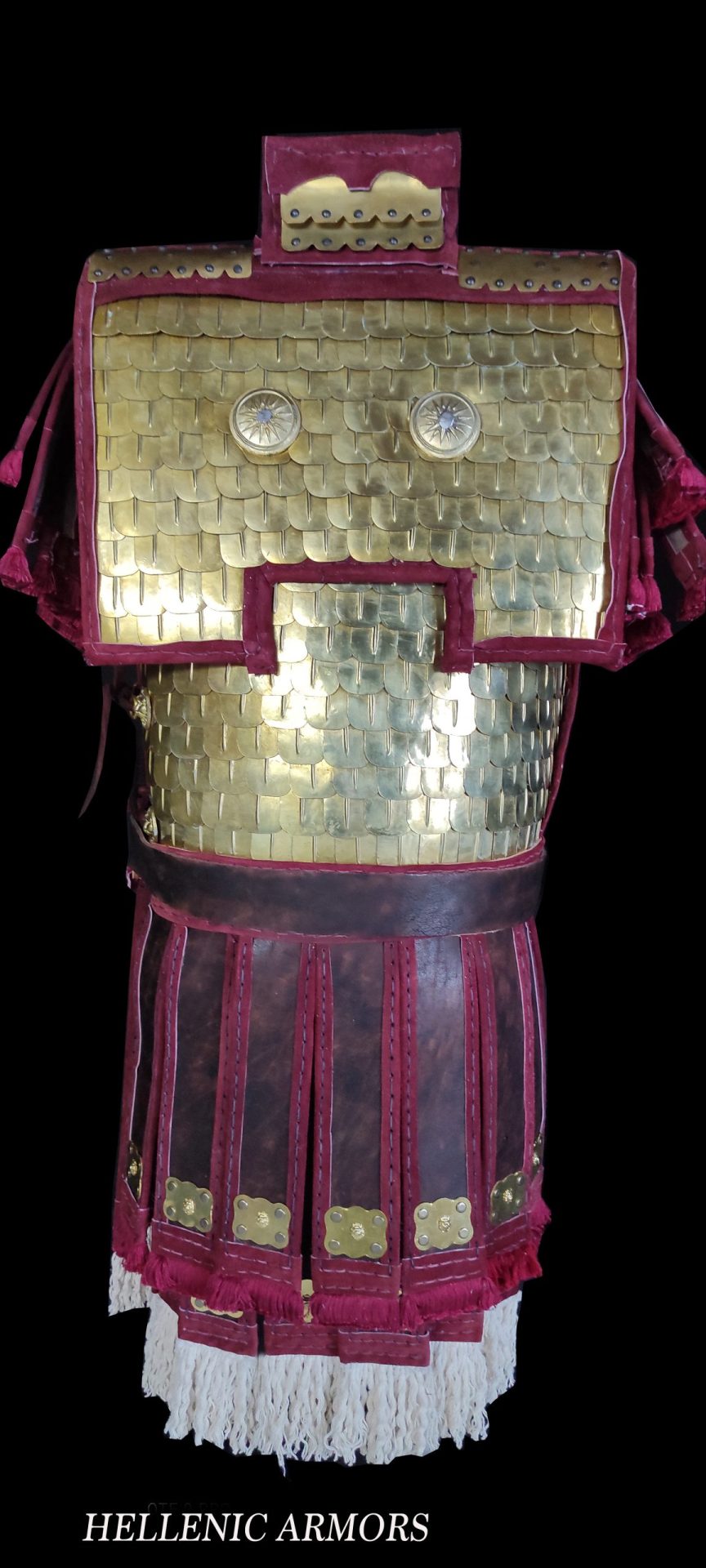

(x)


(x)
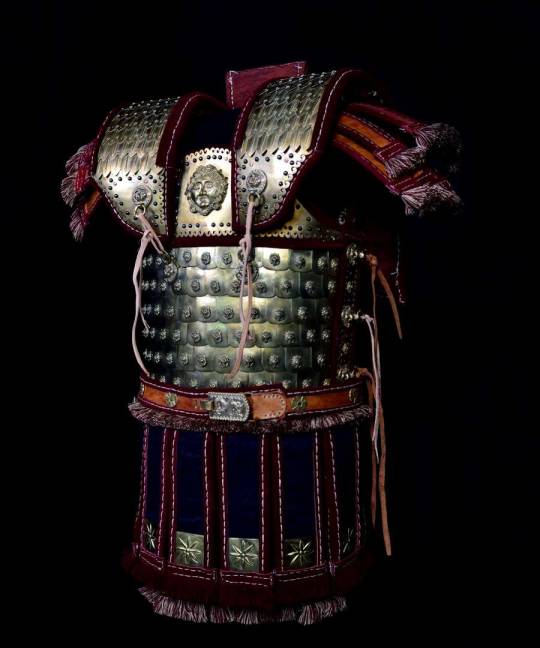

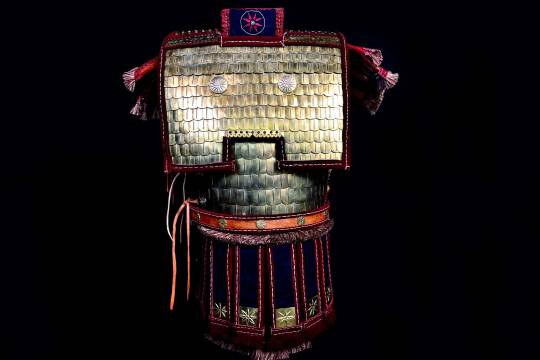
(x)
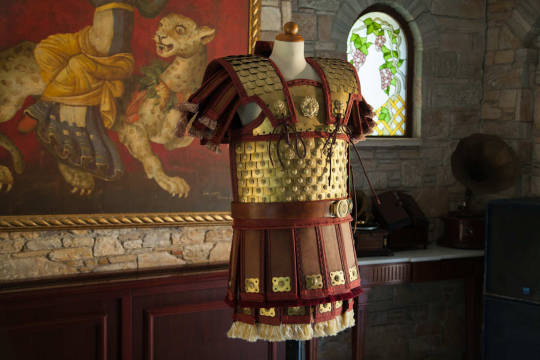


(x)
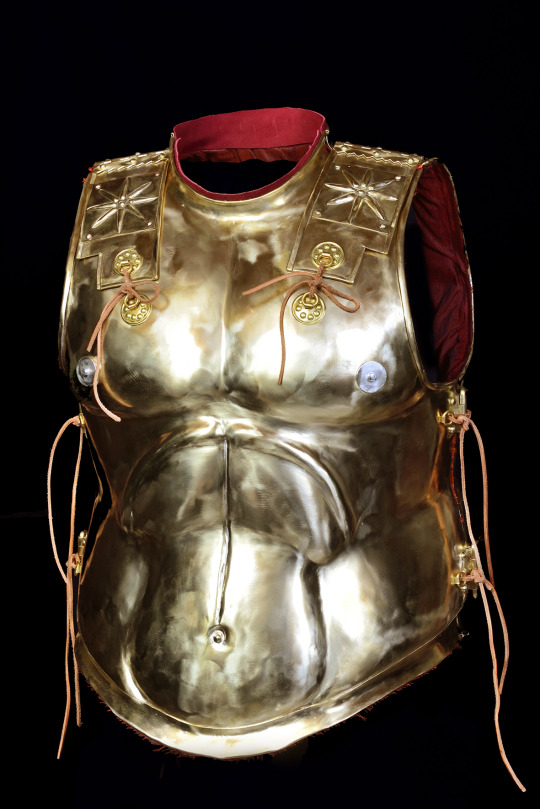
(x)



(x)


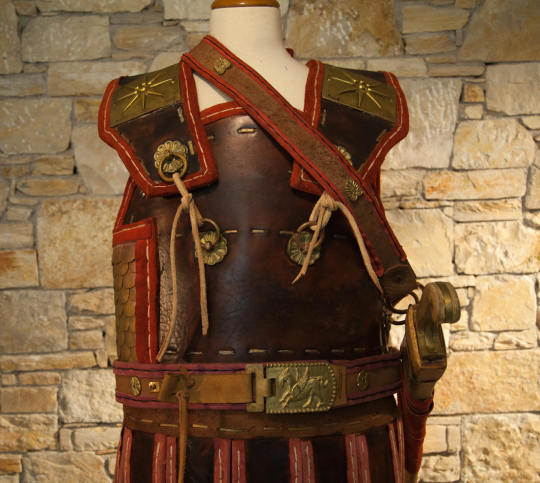



(x)
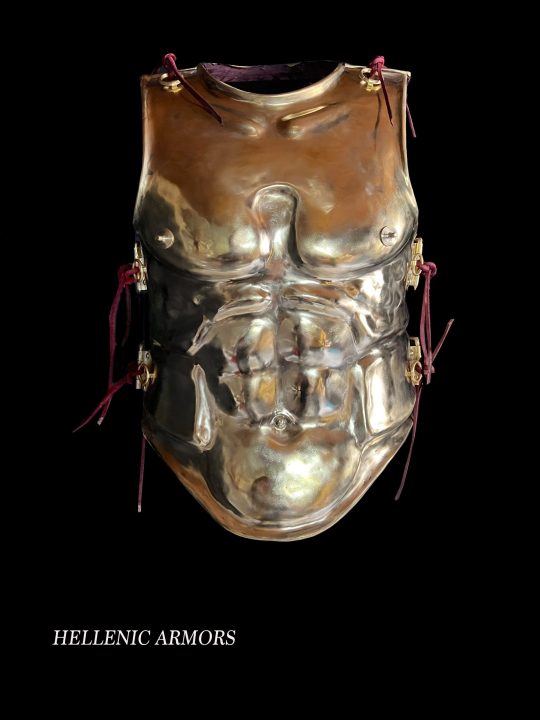
(x)

(x)

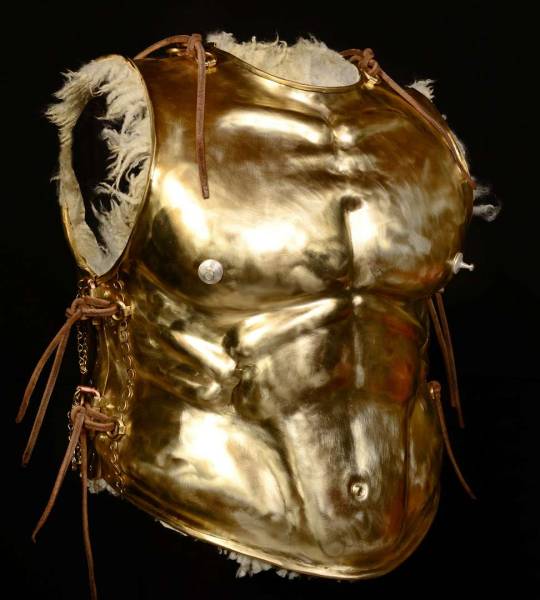
(x)
#Greek muscled cuirass#Linothorax#Alexander the Great#Phillip II of Macedon#ancient greek#hellenic armor#4th century B.C#3rd century B.C
4 notes
·
View notes
Note
I saw your tags on the arrow post and I would very much like to learn about the eye surgery thing but from your words bc I feel like I’ll learn in a more fun way than from googling it would u mind sharing?
Absolutely I will share thank you for asking this is one of the funniest things I've ever experienced in this particular class actually, which is really saying something because this was a class on archaic and classical Greece taught by a millennial, so you already know it’s wild as hell.
For a little bit of context, Phil loses his eye between 355 and 354. Up until that point, it’s been about 150 years of near constant tension, save for the 20 odd years between the end of the Persian War and the start of the Peloponnesian War (which is really just two wars strung together by a joke of a detente—I can tell you more about it another time). Athens lost the Pelop war, Sparta won, Sparta starts a hegemony, Lysander of Sparta installs oligarchies, Sparta Does Not Like That, Thebes comes in and starts their own hegemony, Macedon Does Not Like That, and Phil goes on a campaign to conquer Greece, and he’s got a preeeetty strong claim.
So there’s a whole lot of fighting. As you might figure, war comes with injuries, and if warriors wanted to live they had to figure out how to fix themselves before the infections got them. At this point in time, they're using missile weapons. Not like, actual modern style rocket missiles—I'm talking stones and arrows. One of these arrows found its way into Phil's eye, and this happened around 355–354, so like, ten years before Macedon's rise to real power in the Greek world, during Phil’s campaign around Greece.
There was this guy called Diocles who was a surgeon in Phil’s army, and surgeons didn’t actually do the surgeries themselves (sometimes they did but I can’t point out specific statistics, it’s not my field and I never went looking) but most of the time they would just hold the patient’s head and shoulders and direct assistants in the surgery. I can’t remember the actual reason for this and I could also have some facts mixed up, so don’t quote me on that specific bit.
Anyways, Phil had an arrow in his eye. Diocles had a spoon (pictured below). Phil was probably drugged up with unmixed wine and some other fancy plants used to get high because their version of anesthetics was alcomahol and weed (or alcohol and weed adjacent). Fast acting pain relief and all, except it doesn’t relieve pain it just inhibits like, all your pain receptors so you don’t feel anything until a day later and then you’re cussing out your surgeon.

^that’s the spoon, it was meant for removing arrows. The hole in the middle is where you’d stick the shaft of the arrow through, so you’d press the back of the spoon against the wound, and then lever the arrow out. It sounds a little impractical and there’s not a whole lot of information but from what it looks like you can infer pretty well how it’s supposed to work.
Diocles removed the arrow from Phil’s eye with that spoon, and along with the arrow, he removed Phil’s eye. There’s some mention about an eyestalk in some text somewhere, I’d have to double check in my copy of Arrian, but I won’t go into that because it’s irrelevant and kinda gory.
So now, there’s about fifteen of us in this class, and, keep in mind that we’re all or mostly in our early twenties, which means we have verbal filters made of single ply toilet paper, and our professor is this millennial guy who regularly dresses like Charlie Swan from Twilight. Flannel and all. Truly one of my favourite professors.
We’re all so morbidly curious about ancient surgery, so we derail the class into a nice long discussion about known surgical methods and hypothetical surgical methods. Someone picks up on the fact that quite a few tools looked like modified cutlery (see: the spoon of Diocles). Someone else suggests unconventional methods of surgery, like a pneumatic contraption for bloodletting. A third person suggests combining the two into a straw, and then proceeds to detail how Diocles might have used a straw to yank Phil’s eyeball out.
My professor hears this, acknowledges this, and in true millennial new dad fashion goes, “Oh, like a boba!”
And I lost it. I told my entire family that story and received varying degrees of approval.
And that’s it! @androgynyispunkashell I’m sorry for taking so long to answer but I hope this was funny and (at least somewhat) informative!
6 notes
·
View notes
Text

a handsome chappy
#alexander the great#hephaestion#alexander iii of macedon#alexander x hephaestion#alexander of macedon#ancient macedonia#phillip ii#british museum#colonialism
20 notes
·
View notes
Photo
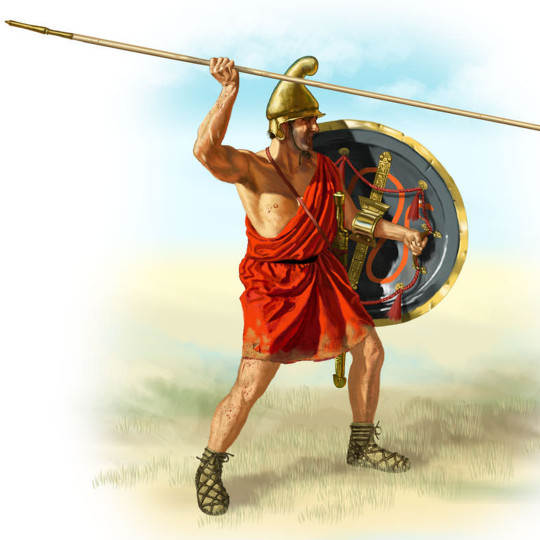
Hypaspist
The hypaspists or hypaspistai were a distinct type of infantry soldier who served as a vital part of the Macedonian armies of both Phillip II of Macedon (r. 359 BCE - 336 BCE) and his son and heir Alexander the Great (r. 336-323 BCE). The hypaspists became an invaluable part of the infantry that helped expand the Macedonian Empire.
Continue reading...
84 notes
·
View notes
Text
THEY MIGHT HAVE FOUND THE BODY OF PHILLIP II OF MACEDON
4 notes
·
View notes
Note
I already when and said something nice to not one but three other people so you can’t complain. :p
I love all your writings they are all just fantastic. You have actually broadened in my vocabulary. (I think I learned like two words I didn’t know existed, so that’s cool)
And you are genuinely good human. Like the world would be a better place if there were more of people like you.
Hoisted by my own petard - as they say xD <3 Well, I'm glad you've spread the proverbial love ^_^
\o/ Oh that's nice to hear! I've said in some post at some point that English is the only language I know well, but my mom was insistent I have a large vocabulary. She felt it would help me get further.
Maybe, maybe not, but I do like words - mostly cause I love puns, if I'm going to be legit XD
Random Quin Trivia - my favorite word is Laconic. Means "of few words". There's a silly little fairy tale around it's etymology that's been proven historically inaccurate, but I love it anyway.
The true origin of it is:
"Laconia was an ancient country in southern Greece. Its capital city was Sparta, and the Spartans were famous for their terseness of speech. Laconic comes to us by way of Latin from Greek Lakōnikos, meaning “native of Laconia.” In current use, laconic means “terse” or “concise to the point of seeming rude or mysterious,” and thus recalls the Spartans’ taciturnity."
The story (and hilariously I am NOT being laconic in my sharing of all of this) that is NOT true goes a little like this:
A prominent example (of the definition of the word) involves Philip II of Macedon. After invading southern Greece and receiving the submission of other key city-states, he turned his attention to Sparta and asked menacingly whether he should come as friend or foe.
The reply was "Neither."
Losing patience, he sent the message: "If I invade Laconia, I shall turn you out."
The Spartan ephors (its leaders) again replied with a single word:
"If."
Historically, Phillip fucked the Spartans up pretty soundly, but it's still a Really Cool Exchange.
Spread the love
5 notes
·
View notes
Text
Recently read through Kate Elliott's Unconquerable Sun and Furious Heaven, the first two parts of a trilogy described as genderbent Alexander the Great in space. Excellent books, but I didn't have the knowledge of Alexander's life necessary to draw the historical parallels. Fortunately, the author has a few essays up on tor.com explaining it. Unfortunately, she doesn't spell out all the connections, so here's what I have, ones stated by the author bolded:
(some spoilers, I guess)
Sun: Alexander the Great
Eirene: Phillip II of Macedon (Alexander's father)
Joao: Olympias (Alexander's mother)
Persephone "Perse" Lee: Ptolemy I Soter (Alexander's companion, later pharaoh of Egypt, noted for keeping memoirs and sponsoring mathematics)
Hestia "Hetty" Hope: Hesphaistion (Alexander's companion and lover)
Alika Vata: Perdiccas (Alexander's companion and general)
James Samtarras: does not have a historical analog, since he apparently fulfills multiple roles
Makinde Bo: Lysimachus (Alexander's general)
Razin Nazir: don't know, she hasn't shown up much, presumably one of Alexander's other companions/generals
Jade Kim: Craterus (Alexander's general, often distrusted for his ambition)
Tiana: Thais (courtesan who later became Ptolemy's consort)
Solomon: Seleuccas (Alexander's general, later founded the Seleucid Empire)
Octavian: no historical analog
Zizou: no historical analog
Crane Marshal Zaofu Samtarras: Parmenion (cautious older general contrasted against Alexander)
Anas Samtarras: Philotas (Parmenion's oldest son)
Angharad Black: Cleitus the Black (soldier who saved Alexander's life)
Moira Lee: Attalos (friend of Phillip's who arranged his marriage to Attalos's yougner relative)
Marduk Lee: Antipater (Alexander's regent in macedonia while he was away on campaign)
Nona Lee: Antigonus? I'm hesitant about this, but Nona is the only character I can think of who fits the description of "one of Philip’s old guard who unlike most of the rest of the older generation retained his importance long into and past the Alexander era"
Dimitar: Demetrius (Antigonus's son, the names match which supports the Nona=Antigonus theory)
Soaring Shan: Cleopatra (Alexander's sister)
Metis: Phillip Arhiddaeus (Alexander's half brother, deemed mentally unfit to rule)
Beau Qiang: Callisthenes (Alexander's historian)
Baron Voy: amalgamation of Demosthenes and Aeschines (athenian orators)
Baragesi: Darius III (ruler of the persians)
Jejomar Os Cook: Sisygambis (Darius's mother, captured by Alexander)
Bartholomew: Barsine (persian noblewoman who knew Alexander as a child, and later married him)
Manu: Memnon (greek mercenary who fought for persia)
Apama: this one I struggled with, Kate Elliott says, "She has an historical counterpoint and in some ways I consider her my most important gender spin in the entire story." But I couldn't find any corresponding person she could be genderbent from. Then I realized that "gender spin" could be referring, not to making a historically male figure female, but to giving a female figure the agency and role in this narrative that she didn't get in the historical record. So my guess is Apama I, a persian noblewoman from a region whose leaders were later referred to as Sabao, whose wikipedia page basically just lists her father, husband, and children.
7 notes
·
View notes
Text
Hi lovelies,
Okay so I am in Greece at the moment, which is so so so so cool because I’ve wanted to come since I was like five. But it was a last minute trip (literally we booked it 24 hours before the flight) and so I know literally nothing about where I am staying. It’s a very cool city called Thessaloniki and has some pretty dope connections to the ancient world, which I thought we could explore together.
The history of Thessaloniki dates back to ancient Macedonia and was a town founded around 315 BC by King Cassander of Macedon. Cassender named the new city after his wife Thessalonike (the half sister of Alexander the Great). Some cool etymology about her name is that it means Victory of the Thessalians (i.e. Thessaly and also form the Greek goddess of victory ‘Nike’). Her name commemorated her being born on the day her father (Phillip II) won a battle with the hero of horsemen from Thessaly. Thessaloniki developed rapidly and by as early as the 2nd century BC it began to build walls which enclosed the city. The city also become a self governing state in the Macedonian Kingdom.
After the fall of the Kingdom of Macedon, Thessaloniki (as the Latin name for it is) became part of the Roman Empire, and became a very important trade hub which connected Byzantium and Dyrrhachium (basically Constantinople and Albania) and facilitated trade between europe and Asia. The city became the capital one of the four roman districts of Macedonia and although it kept its sovereign privileges it did have a praetor overseeing it.
In the 1st century AD, Thessaloniki had a thriving jewish community. Later on, the apostle Paul was sent to preach in the Jewish synagogue and establish and Christian church and write two letter to the Christian community of the city. These became known as the Epistles and Thessalonians.
Modern day Thessaloniki has a very very cool Archaeological Museum which holds and interprets artefacts from the Prehistoric, Archaic, Classical and roman periods from all over Macedonia. I’m literally here for three days but I already don’t want to leave, and I would recommend coming if you ever get the chance. I hope you all have a lovely weekend :)
~Z
#classical studies#classics#dark acamedia#greek mythology#ancient rome#roman mythology#ancient greece#ancient world#history#hellenic deities#thessaloniki#greece#macedonia#ancient history#greek history#tourisim
4 notes
·
View notes
Text
Divide et impera
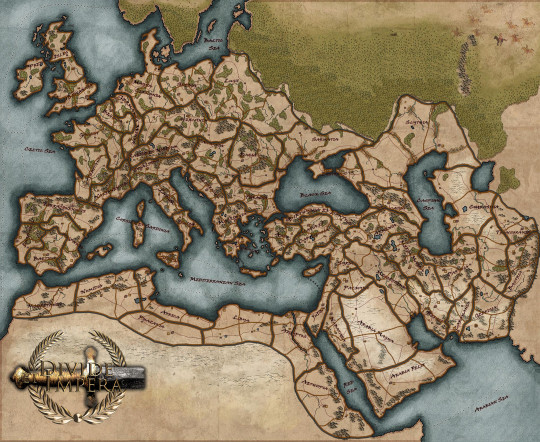
"Divide and rule/conquer" is a political strategy consisting into creating tension to divide your people - that way, they won't gather behind a leader to overthrow the government in power. It was -still is - a way to break alliances of minor powers before they started growing - you had to make them loose their trust in each other.
It looks like it's been done a few times with conquered people in Europe.
The phrase (in Ancient Greek) is attributed to Alexander the Great's Dad (okay, he had a name and was fairly known : Macedonia started beginning more powerful and vaster because of him. You can call him Phillip II of Macedon)
Machiavelli used it in his Art of War.
2 notes
·
View notes
Photo

A crude representation of Zeus on a coin imitating those of Phillip II of Macedon but made by a Celtic people living north of Greece. Although artistically inferior, its silver value was the same as the originals making it suitable for exchange.
0 notes
Text
The Subverted History of America's First Third-Party
The bipartisan construction of America's political system can be and often is chastised for being a false dichotomy. While Democrats and Republicans certainly find themselves at odds against each other, those conflicting positions aren't representative of much more than the factional divergences that create internal strife within a uniparty. This dynamic is similar to that which existed in self-avowed single party totalitarian states like the Soviet Union and Nazi Germany, where the consolidation of power by Hitler over the Strasserists and Stalin over the Old Bolsheviks demonstrates how a unified party is still rife with conflict within its ranks.
Those parallels between two of the 20th century's most oppressive political regimes and the current state of the America's political system highlight more than just the latter's contradictory existence as a supposed democracy. It also shows its reliance on the strategy to divide and conquer to preserve its balance of power, an approach instilled by the ruling classes of disparate civilizations over millennia but best put into words as the recognizable term during the reign of Phillip II of Macedon, father to and predecessor of Alexander The Great.
In pitting the huddled masses against each other, the general populous is discouraged from unifying against their actual enemy: the ruling elite. Beyond that, being engaged in that Pyrrhic battle does more than merely protect the ruling class, it veils their invisible hand as the driving force of history. That veneer cast over the inner machinations of what truly controls government conveys a divorce from reality. Many only examine what they're presented with by accepting a narrative cultivated by their very rulers. Others dive much deeper into the forces beneath that surface level understanding and in doing so take an iconoclastic stance against the existing power apparatus in an effort to challenge its hegemony.If we take bipartisanship as that status quo, than the best representation of the struggle to defeat its hegemony is the absence of at least an actual third-party into the American political arena to disrupt the balance of power that presently exists. While many third-parties have existed in US history, the first of its kind has been relegated into obscurity. When a third-party is mentioned in the context of US history, the first to come to mind is often the Progressive or "Bull Moose" Party led by Theodore Roosevelt after his two terms as President under the Republican banner. Roosevelt himself previously unified the Republican Party by assimilating the Silver Republicans who opposed President William McKinley's singular gold standard in support of the free silver movement advocating a bimetallic monetary policy in the wake of the Panic of 1893 back into the GOP.
Despite its historic notoriety, the Bull Moose Party was preceded by the United State's first third-party nearly a century earlier. It too was joined by a former US president. However, its impetus wasn't rooted in opposition to a particular policy position. Instead, it was created to confront what it viewed as a subversive force that had infiltrated and corrupted the US government. That force was Freemasonry. In quite a literal sense, the first third-party in the history of the United States to have representatives elected to Congress to form a plurality was none other than the Anti-Masonic Party.
To this day, suspicions over Freemasonry and its historical role influence over the ruling structure of nations throughout the world is a concept that has become part of everything from scholarly debate to memes that have become ingrained into popular culture. While the belief is caricatured as a delusional conspiracy theory, with repute for Freemasonry being relegated to that of a glorified drinking club, a historical examination of the origins of this sentiment in the American political sphere demonstrates that it is far more than the figment of anyone's imagination.
https://www.youtube.com/embed/wpg8iziLaA0
The Driving Force of Masonic Influence Throughout the History of the United States
"The blind Force of the people is a Force that must be economized, and also managed, as the blind Force of steam, lifting the ponderous iron arms and turning the large wheels, is made to bore and rifle the cannon and to weave the most delicate lace. It must be regulated by Intellect. Intellect is to the people and the people's Force, what the slender needle of the compass is to the ship--its soul, always counselling the huge mass of wood and iron, and always pointing to the north. To attack the citadels built up on all sides against the human race by superstitions, despotisms, and prejudices, the Force must have a brain and a law."
The preceding quote is taken from the first chapter of Morals and Dogma, a seminal esoteric tome written by the most prominent Freemason in the history the United States: Albert Pike. Though not heralded in the annals of American history in the same regard as many of his contemporaries, his imprint and reverence are undeniable. Pike was the only Confederate General to have a statue in Washington DC before it was dismantled by members of Black Lives Matter in January of 2021. He was also the first attorney to argue before the Supreme Court of the United States on behalf of Native American tribes in pursuit of returning their lands to them. Upon ascending the ranks of the Scottish Rite of Freemasonry, Pike was named the Sovereign Grand Commander of its Southern Jurisdiction, having been bestowed the 33rd degree of the order by its Supreme Council.
Despite his achievements, Pike's inextricable immersion in the enigmatic aura of Freemasonry, leaves him remembered as more of a legend than an actual historical figure. Perhaps this is by design, as the folklore that Pike is veiled beneath keeps those so quick to ardently vilify him from ascertaining the teachings that embody the surreptitious power structure critics of masonry ascribe to it and the stranglehold they purport it holds over our social order.
While Pike didn't publish Morals and Dogma until 1871, the idea of Freemasonry was an institution tasked with the architecture of society avowed in his work was a belief held by the general public for quite some time. It is well-established that Freemasonry was at the core of the founding of the United States of America. After all, the personification of the foundation of the United States, George Washington, was a Freemason himself having been initiated into the Grand Lodge of Fredericksburg in Virginia at just 20 years of age in September of 1752. As Freemasonry's imprint on America grew, Washington's standing with in the fraternity did as well, seeing him ascend to the title of Master of Alexandria Lodge No. 22 which also was situated in his home state. To this day, the Alexandria Lodge maintains a monument commemorating Washington and his standing as a Freemason.
While the life of George Washington serves to show the crucial role that Freemasonry played in the foundation of America's new republic, the recognition of that impact comes with the benefits of centuries of hindsight. During the nascent years following the inception of the United States, Freemasonry certainly was more adept at shrouding itself in secrecy. It wasn't until later in the 19th century that the veil became lifted and the fraternal order took on its reputation as being a haven for elitists who sought to control the democratic institutions governing the common man, a revelation which would usher the opposition of the Anti-Masonic Party into existence following an especially publicized controversy alleging the nefarious activities of Freemasons.
The Political Catalyst that was the Morgan Affair
Evidence of Freemasonry perversion of US institutions was a matter of concern preceding the Anti-Masonic Party for some time. The same year that the Declaration of Independence was drafted also marked the inception of another well-recognized secret society: the Illuminati. The term Illuminati certainly didn't enter into the western lexicon in 1776, with references to the "illumbrios" made by the Spanish Inquisition being documented centuries earlier and the term being analogous to the concept of gnosticism.
However, in the context of the aforementioned secret society whose birth coincided with the formation of the United States of America, the term is specific to the Bavarian Illuminati founded by the German Philosopher Adam Weishaupt. In 1777, Weishaupt was initiated into the Freemasons at a lodge in Munich, using it as a forum to recruit members to the Illuminati. However, his brazen tactic exposed his society and its teachings which were viewed as seditious, prompting Elector of Bavaria Karl Theodor to exile Weishaupt by 1784.Despite his exile, Weishaupt's apparent infiltration of the order of Freemasonry brought the order into disrepute, bringing it considerable vitriol from an emergence of outspoken critics. One of these critics was the British Physicist John Robison who published his Anti-Masonic polemic Proofs of a Conspiracy in 1798. The work followed Augustin Barruel's 1797 work Memoirs Illustrating the History of Jacobinism in which the author asserts the influence of the Illuminati was at the core of the French Revolution. Robison's work promulgated the emergence of the Illuminati and its disruption of the order of Freemasonry. The claims made in Proofs of a Conspiracy were so incendiary that it was brought to the attention of George Washington by Reverend G.W. Snyder, a friend who the President kept in correspondence with who he replied to in turn, stating:
"It was not my intention to doubt that, the Doctrines of the Illuminati, and principles of Jacobinism had not spread in the United States. On the contrary, no one is more truly satisfied of this fact than I am. The idea that I meant to convey, was, that I did not believe that the Lodges of Free Masons in this Country had, as Societies, endeavoured to propagate the diabolical tenets of the first, or pernicious principles of the latter (if they are susceptible of separation). That Individuals of them may have done it, or that the founder, or instrument employed to found, the Democratic Societies in the United States, may have had these objects; and actually had a separation of the People from their Government in view, is too evident to be questioned.” (George Washington, shortly before he died, read John Robison’s book Proofs of a Conspiracy and immediately expressed his belief to the preacher who had sent it to him, that the designs of the Illuminati were infecting our country."
This intrigue was shared by Thomas Jefferson, who remarked he had started to examine the claims made by Robison in a letter to Bishop James Mason written on January 31st, 1800. While Washington and Jefferson's focus on the Illuminati's campaign to co-opt Freemasonry centered around the claims made b Robison in Proofs of a Conspiracy it was another anti-masonic work which would instigate the formation of the Anti-Masonic Party decades later.Illustrations of Masonry written by William Morgan, a man who had served as a Captain in the US Navy during the War of 1812 followed the works written by Barruel and Robison decades earlier in the same effort to expose the secret society. However, though Morgan's work shared that initiative, his did not focus on any examination of the infiltration of the Illuminati. Instead, Morgan outlined the secret rituals and practices of the Freemasons which he had participated in upon being initiated as a Master Mason during his residency in Canada before being bestowed the degree of the Royal Arch within the York Rite in 1825. Following that distinction, Morgan attempted to charter new Masonic Lodges in Batavia, New York. However, his effort was to no avail having been rejected and ostracized by his Masonic peers in his new home. In protest, Morgan was engaged by fellow Mason and local newspaper owner David Cade Miller through a $500,000 penal bond to publish his expose, with the author being promised one-fourth of all its profits.
Original Article
Original Article Here:
Read the full article
0 notes
Text
Aristotle's school - The world's greatest ancient educational institution in Naoussa
Aristotle’s school – The world’s greatest ancient educational institution in Naoussa
The ruins of school is the site where the greatest philosopher of the antiquity taught the greatness of classical Greek thought and the ideals of the Platonic philosophy to the King’s of Macedonia, Phillip II, son, Alexander and the other nobles of the Macedonian court. Aristotle was hired by Alexander’s father, Philip II of Macedon, to teach his son, and was given the Temple of the Nymphs as…

View On WordPress
#Alexander III of Macedon#Alexander the Great#Ancient Mieza#Aristotle#Aristotle School#caves#Delacoulonce#Fotis Petsas#Nympheon#Philip II of Macedon#school
1 note
·
View note
Text


~ Olympic Coin of Philip II of Macedon.
Culture: Greek
Date: ca. 359-336 B.C.
Medium: Gold
#ancient art#ancient coin#ancient currency#ancient money#ancient history#ancient#ancient greek#history#archeology#museum#archaeology#currency#coin#money#greek#greece#olympic goin#olympic#phillip ii of macedon#phillip ii#macedon#gold#ca. 359 b.c.#ca. 336 b.c.
273 notes
·
View notes
Link
#Phillip II of Macedon#Alexander the Great#Issus Mosaic#Persian campaign#Darius III#Hellenic War#Athenian democracy
34 notes
·
View notes
Photo

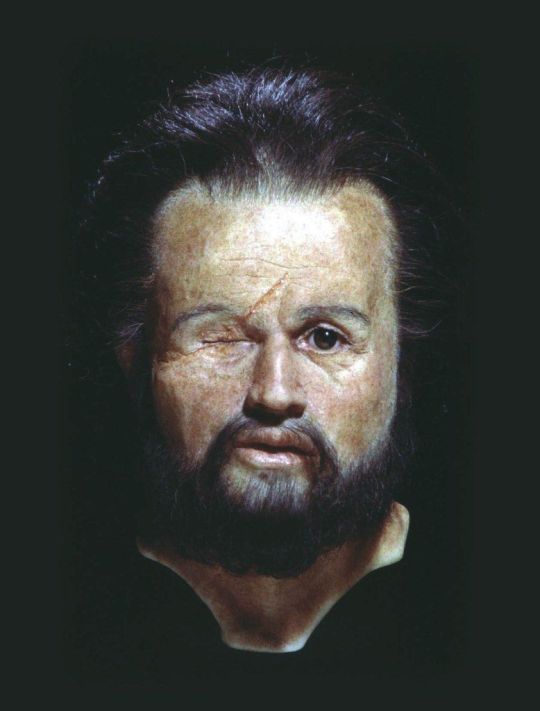
Reconstruction of the faces of Alexander the Great and his father Phillip II. Alexander's face has been reconstructed based on his statues.Τhe artist has forgotten to add Alexander’s black eye, as he had heterochromia iridium.
Phillip’s face has been reconstructed based on his skull. His tomb was found in Vergina, Greece in 1977 by Greek Archaeologist Manolis Andronikos.
#alexander the great#ancient greece#ancient greek history#history#greece#alexander of macedon#philip of macedon#phillip ii#ancient greeks#ancient greek art#archaeology#ancient macedonia
9 notes
·
View notes